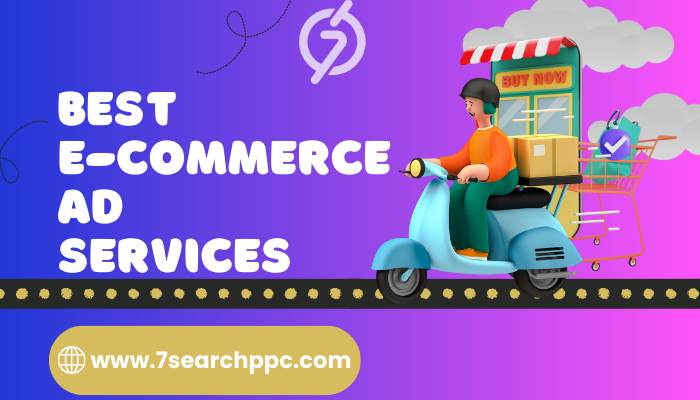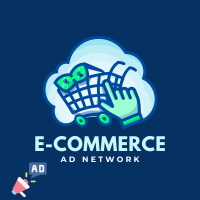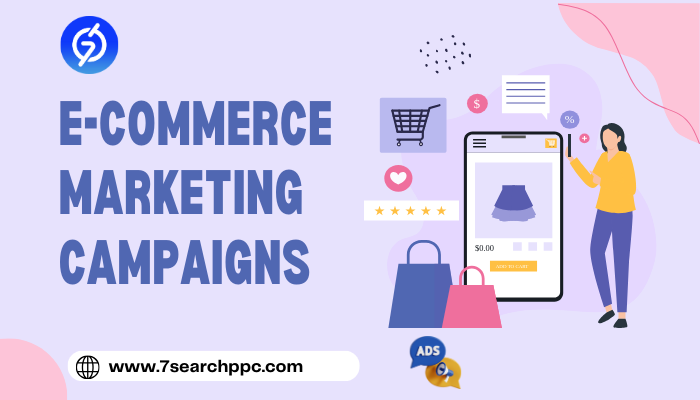The Future of E-commerce Marketing: Predictions and Insights

Strong 8k brings an ultra-HD IPTV experience to your living room and your pocket.
E-commerce marketing has come a long way from its early days. What once started as a small online storefront has turned into a billion-dollar industry driven by technology, creativity, and data-driven insights. As the e-commerce landscape continues to evolve, businesses must stay ahead of the curve. In this article, we explore the future of e-commerce marketing, focusing on emerging trends, predictions, and insights that will shape the industry in the coming years.
What is E-commerce Marketing?
E-commerce marketing refers to all the online strategies and efforts a business uses to sell its products and services. It involves everything from social media campaigns and search engine optimization (SEO) to paid advertising and influencer partnerships. The goal is to increase brand awareness, drive traffic to an online store, and ultimately, convert visitors into customers.
The Importance of E-commerce Marketing Today
As the world becomes more digital, e-commerce marketing has become a vital tool for businesses of all sizes. Whether you're a small online shop or a large retailer, having an effective marketing strategy is crucial. With more people shopping online than ever before, companies need to invest in effective strategies to stay competitive. As consumer behavior continues to change, the methods we use to advertise online will also evolve, leading to more personalized, data-driven campaigns that cater to individual preferences.
The Growing Role of Online Store Advertising
Evolution of Online Store Advertising
Online store advertising has evolved significantly in recent years. From the early days of simple banner ads to today's complex, multi-platform campaigns, advertising has become more targeted and interactive. Today, advertisers can leverage a variety of platforms such as Google Ads, Facebook, Instagram, and even emerging platforms like TikTok to reach their ideal audience.
In addition, advancements in data analytics and machine learning allow businesses to track consumer behavior in real-time, enabling them to serve highly personalized ads that drive higher conversion rates.
Key Trends Shaping Online Store Advertising
One of the key trends in online store advertising is the increased use of video content. Video ads are more engaging and tend to capture consumers' attention better than static images. Additionally, social media platforms like Instagram and Facebook have made it easier for businesses to run ads directly within their platforms, offering more seamless shopping experiences.
Another trend is the rise of influencer marketing. By partnering with influencers, brands can tap into the trust and authority that these individuals have with their followers, increasing brand visibility and driving traffic to their stores.
The Best Ad Network for E-commerce Businesses
Why Choosing the Best Ad Network Matters
When promoting an online store, selecting the best ad network is crucial for reaching the right audience. With numerous options available, each with its own strengths and weaknesses, businesses must carefully choose where to invest their ad budget.
The best ad network will depend on factors such as your target audience, product type, and budget. For example, if you're targeting a younger demographic, platforms like Instagram or TikTok may be ideal. On the other hand, if you’re targeting users actively searching for products, Google Ads could be more effective.
Top Ad Networks for E-commerce Advertising
There are several prominent ad networks that e-commerce businesses should consider. Among the best are:
- Google Ads: With its vast reach and ability to target users based on search intent, Google Ads remains one of the most effective ad networks for e-commerce.
- Facebook Ads: Facebook’s sophisticated targeting options make it ideal for reaching niche audiences. Additionally, Instagram’s integration with Facebook Ads has made it even easier for businesses to run multi-platform campaigns.
- Amazon Ads: If you're selling on Amazon, using its native advertising platform can be highly effective. It targets users who are already in a buying mindset, increasing the likelihood of conversions.
- TikTok Ads: For brands targeting Gen Z and millennial shoppers, TikTok provides a unique opportunity to create engaging, viral content.
How to Leverage E-commerce Ad Services for Growth
E-commerce ad services help businesses maximize their reach and ROI by leveraging paid advertising. To make the most out of these services, it’s important to:
- Target the Right Audience: Use detailed targeting options to ensure your ads reach potential customers who are likely to convert.
- Optimize Ad Spend: By setting clear budgets and goals, you can optimize your ad campaigns to maximize ROI.
- Utilize Retargeting Strategies: Retargeting ads can help bring back visitors who have interacted with your site but haven’t made a purchase yet.
The Future of E-commerce Marketing: Key Predictions
Artificial Intelligence in E-commerce Marketing
Artificial intelligence (AI) is poised to revolutionize e-commerce marketing. With the ability to analyze large amounts of data in real-time, AI can help marketers create highly personalized campaigns that resonate with individual consumers. For instance, AI-powered chatbots can provide personalized shopping experiences, answering customer questions instantly and guiding them through the purchasing process.
Chatbots and Personalization in E-commerce
AI-driven chatbots can assist customers by offering tailored product recommendations, answering inquiries, and even completing purchases. This level of personalization helps create a seamless shopping experience that can increase customer satisfaction and retention.
The Rise of Voice Search and Its Impact on E-commerce
With the growing use of voice-activated devices like Amazon Echo and Google Home, voice search is becoming an increasingly important factor in e-commerce marketing. Businesses will need to optimize their online stores and product descriptions for voice search to ensure they appear in relevant voice queries.
Maximizing E-commerce Ad Campaigns
Crafting the Perfect E-commerce Ad Campaign
Creating an effective e-commerce ad campaign involves several key elements, including understanding your target audience, crafting compelling ad copy, and choosing the right ad formats. Use strong calls-to-action (CTAs) that motivate users to take action and make sure your ads are visually appealing.
Key Strategies for Successful E-commerce Ad Campaigns
Successful e-commerce ad campaigns focus on engaging visuals, targeted messaging, and an understanding of consumer behavior. Additionally, leveraging user-generated content and social proof can help build trust and credibility for your brand.
Measuring Success in E-commerce Ads
Tracking key performance indicators (KPIs) such as click-through rates (CTR), conversion rates, and return on ad spend (ROAS) is essential for evaluating the success of your e-commerce ad campaigns. Use these metrics to optimize your future campaigns and improve overall performance.
The Shift to Mobile-First E-commerce Marketing
Mobile Optimization for E-commerce Ads
As mobile shopping continues to rise, optimizing your ads for mobile devices is crucial. Ensure your ads load quickly, are visually appealing on small screens, and offer a seamless shopping experience.
Mobile Shopping Trends and How They Affect Ads
Consumers are increasingly shopping on mobile devices, which means that e-commerce ads must be optimized for mobile-friendly experiences. Mobile-first strategies are becoming the standard, and businesses that fail to adapt risk losing potential customers.
Data-Driven E-commerce Marketing
Collecting and Analyzing Customer Data
In e-commerce marketing, data is king. Collecting customer data from various sources allows businesses to gain valuable insights into their audience’s preferences, behaviors, and purchasing patterns.
Using Data for Better Ad Targeting
By leveraging customer data, businesses can create more effective e-commerce ad campaigns that target the right people at the right time. This can lead to higher conversion rates and a more efficient ad spend.
Conclusion: The Road Ahead for E-commerce Marketing
The future of e-commerce marketing is bright, with advancements in AI, voice search, and data-driven advertising reshaping the landscape. To stay competitive, businesses must continually innovate, embrace new technologies, and adapt to evolving consumer behaviors. As e-commerce ad services continue to improve, companies will have even more tools at their disposal to reach their audience and drive growth.
FAQs
What is the best ad network for e-commerce marketing?
Ans. The best ad network depends on your target audience. Google Ads, Facebook Ads, and Amazon Ads are among the most popular and effective platforms for e-commerce businesses.
How can I optimize my e-commerce ads for mobile devices?
Ans. Ensure that your ads are mobile-friendly by focusing on fast load times, visually appealing designs, and easy-to-navigate interfaces for mobile shoppers.
What role does artificial intelligence play in e-commerce marketing?
Ans. AI can help create personalized customer experiences, optimize ad targeting, and improve overall marketing strategies through data analysis and automation.
How do I track the success of my e-commerce ad campaigns?
Ans. Monitor key metrics like click-through rates, conversion rates, and return on ad spend to evaluate campaign performance and make adjustments as needed.
How can I improve my e-commerce ad targeting?
Ans. Utilize customer data, behavior insights, and advanced targeting options from ad networks to ensure your ads reach the right audience at the right time.
Note: IndiBlogHub features both user-submitted and editorial content. We do not verify third-party contributions. Read our Disclaimer and Privacy Policyfor details.







